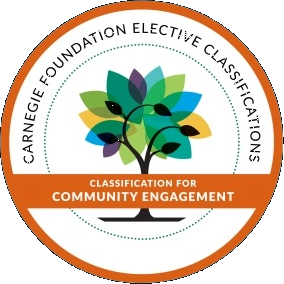September 18, 2020
Friday, September 18, 2020
10:00 a.m. - 12:00 p.m. Eastern
Description
Hosted by the International Association for Research on Service-Learning and Community Engagement (IARSLCE), this webinar is made possible by the University of Minnesota and other donors.
Throughout history, certain localized incidents of discrimination, oppression, and genocide have triggered global reactions and calls for change. While some have resulted in real change, many have lost attention over time. On May 25, 2020, George Floyd’s tragic death in Minneapolis, Minnesota sparked a series of global protests and calls to action. Mr. Floyd’s killing has been described as a turning point for addressing the deep systemic racial inequities that exist not only in the United States, but in many parts of the world. What are the aspects of this particular incident that have made this a global movement? Is this truly a turning point, or will this critical and important issue be overshadowed by other events that come to the fore?
A core value of service-learning and community engagement is to benefit communities, with an ultimate goal of producing positive societal change. Such change requires sustained efforts through authentic mutually beneficial partnerships. What can we learn from the recent uprisings and protests in Minneapolis and beyond for what it truly means to conduct community engagement and service-learning for real community benefit and change? What are the implications of the recent calls to action for how we conduct research on service-learning and community engagement?
This virtual event engages participants with colleagues from across the globe in examining the issues of racial and cultural inequities in the study and practice of service-learning and community engagement.
The session begins with reflections from colleagues in Minneapolis who bore witness to the events that followed Mr. Floyd’s killing. They examine the underlying factors that sparked the city’s strong reaction to this tragedy and the importance of the Black Lives Matter movement. Colleagues in other parts of the globe will then share their thoughts about why what happened in Minneapolis resonated across the globe. What was it about this local incident that resulted in a worldwide call to action? How do we sustain the call to action to realize real change? This session concludes with a discussion about the role that service-learning and community engagement research and practice play in advancing and realizing systemic justice.
Cost
There is no cost to participate in this webinar, but registration is required.









